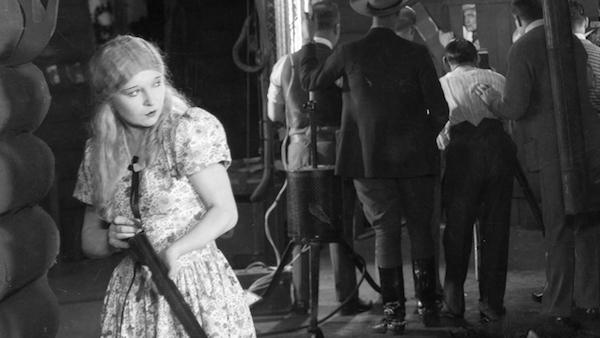Twenty-five-year-old Anthony Asquith didn’t call the shots on the silent movie that launched his distinguished directorial career, but the screenplay he co-wrote with JOC Orton included elaborate scenarist notes that told his designated co-director, AV Bramble, exactly what he intended. It was a gamble that paid off – 1927’s Shooting Stars proved a dazzling combination of tragicomedy and early docudrama, its subject being life in a film studio (Cricklewood in North London).
The essays that accompany the British Film Institute’s dual-format release of the restored film emphasise that it was Asquith’s vision. He was responsible, for example, for the opening spoof of a sentimental Hollywood cowboy romance in which the Mary Pickford-like leading lady shows her true colours when the dove she’s cossetting pecks her, and also for the breathtaking travelling shot that follows the same actress, Mae Feather (Annette Benson), and her co-star, Julian Gordon (Brian Aherne), as they leave their set and walk through the cavernous studio, passing the set of a slapstick comedy that’s before the camera.
However, Shooting Stars is so full of inspired bits of business – actors and bit players larking around between takes, controlled mayhem during the shooting of the same comedy on a Norfolk beach – that one wonders if the veteran Bramble was more than a supervisor or glorified technician. Perhaps he threw in some ideas and helped create the rich ambience.
Though the story may have been an excuse for Asquith’s razor-sharp cross-section of studio life, it’s not unaffecting. It depicts the hubristic movie queen Mae’s fall from grace. Unhappily married to the handsome, trusting, but problematically blokeish Julian, she starts a rapturous affair with the Charlie Chaplin-like – thus more sensitive – comedy star Andy Wilks (Donald Calthrop). Arranging for Julian’s murder on the set of their cowboy film proves her undoing.
This possibly served as a warning for the real-life aspiring actresses who are shown in Pathe's Screen Beauty Competition (1920) and Starlings of the Screen (1925), which are among the seven vintage film industry promotional shorts included in this superbly curated BFI package. One of the “Starlings” was former chorus girl and advertising model Sybil Rhoda, who ended up acting in three movies, including Alfred Hitchcock’s Downhill (1927), and died at 102 in 2005.















Add comment